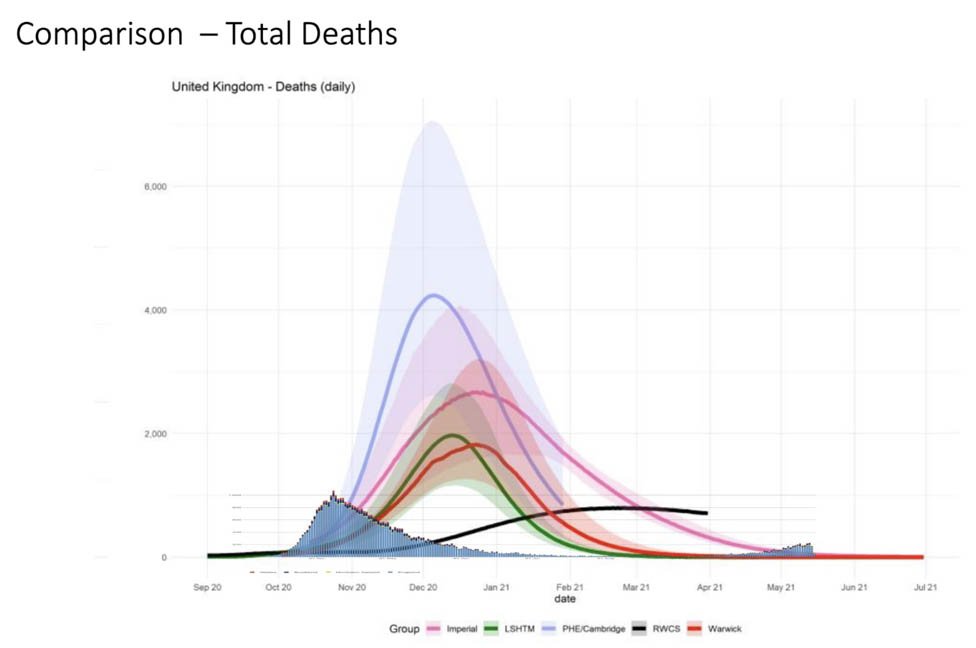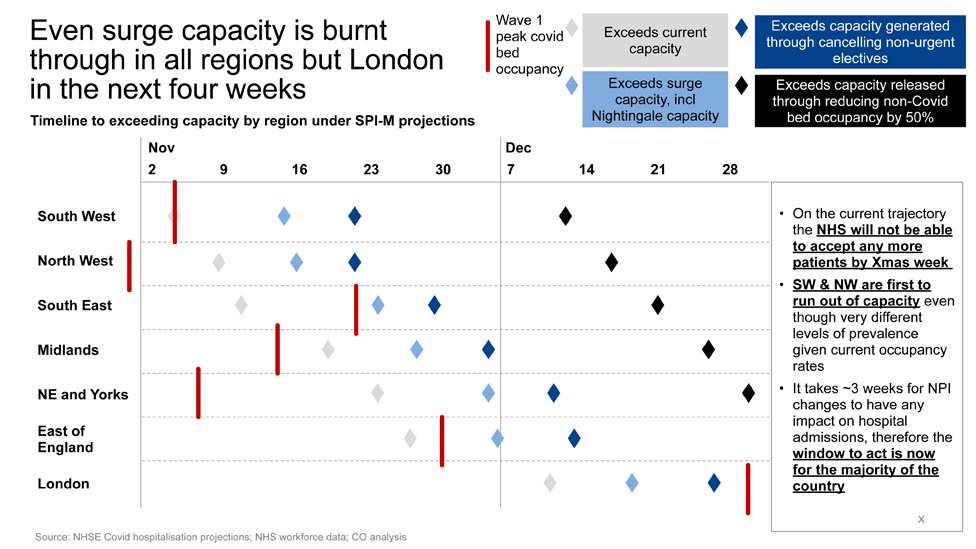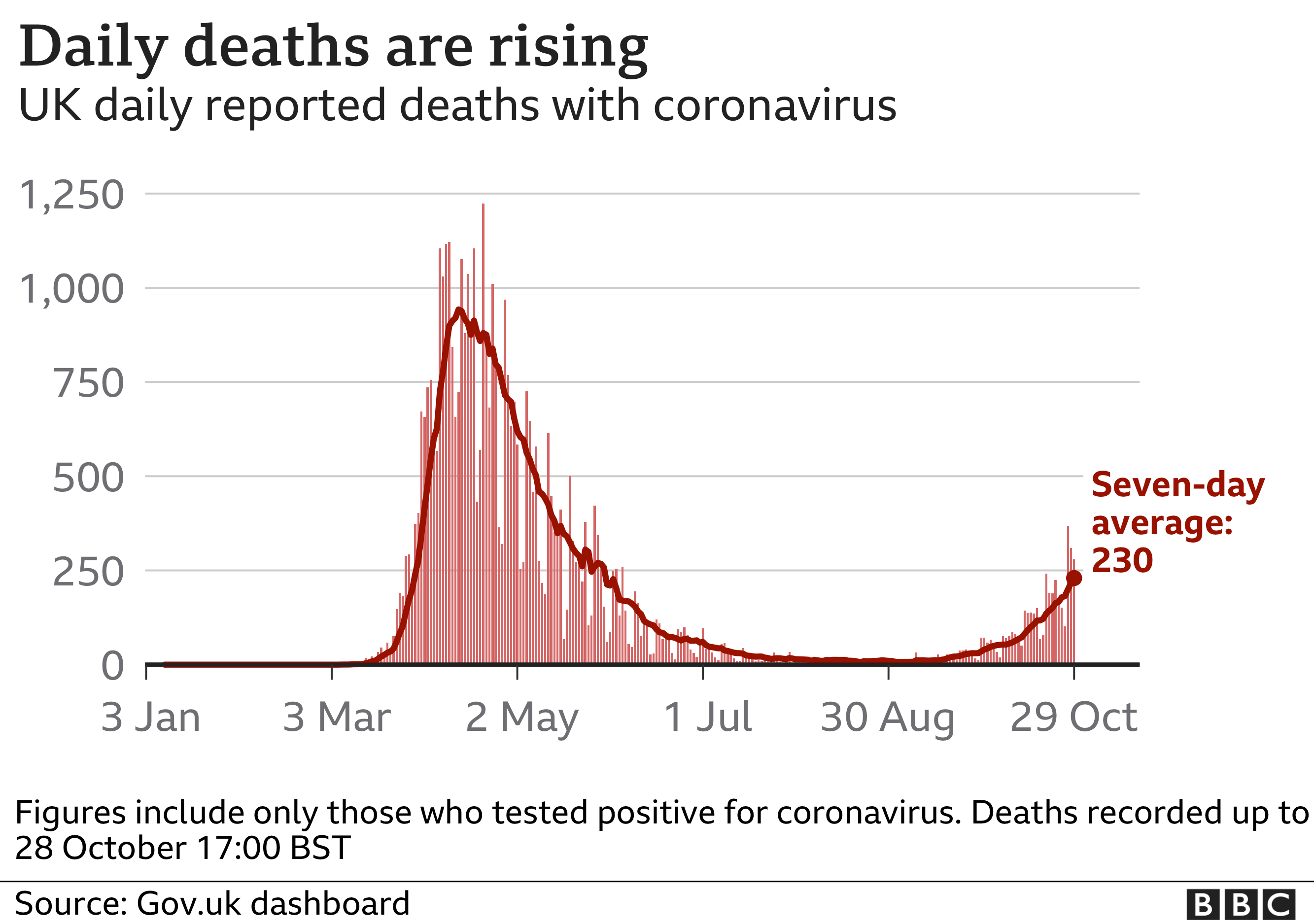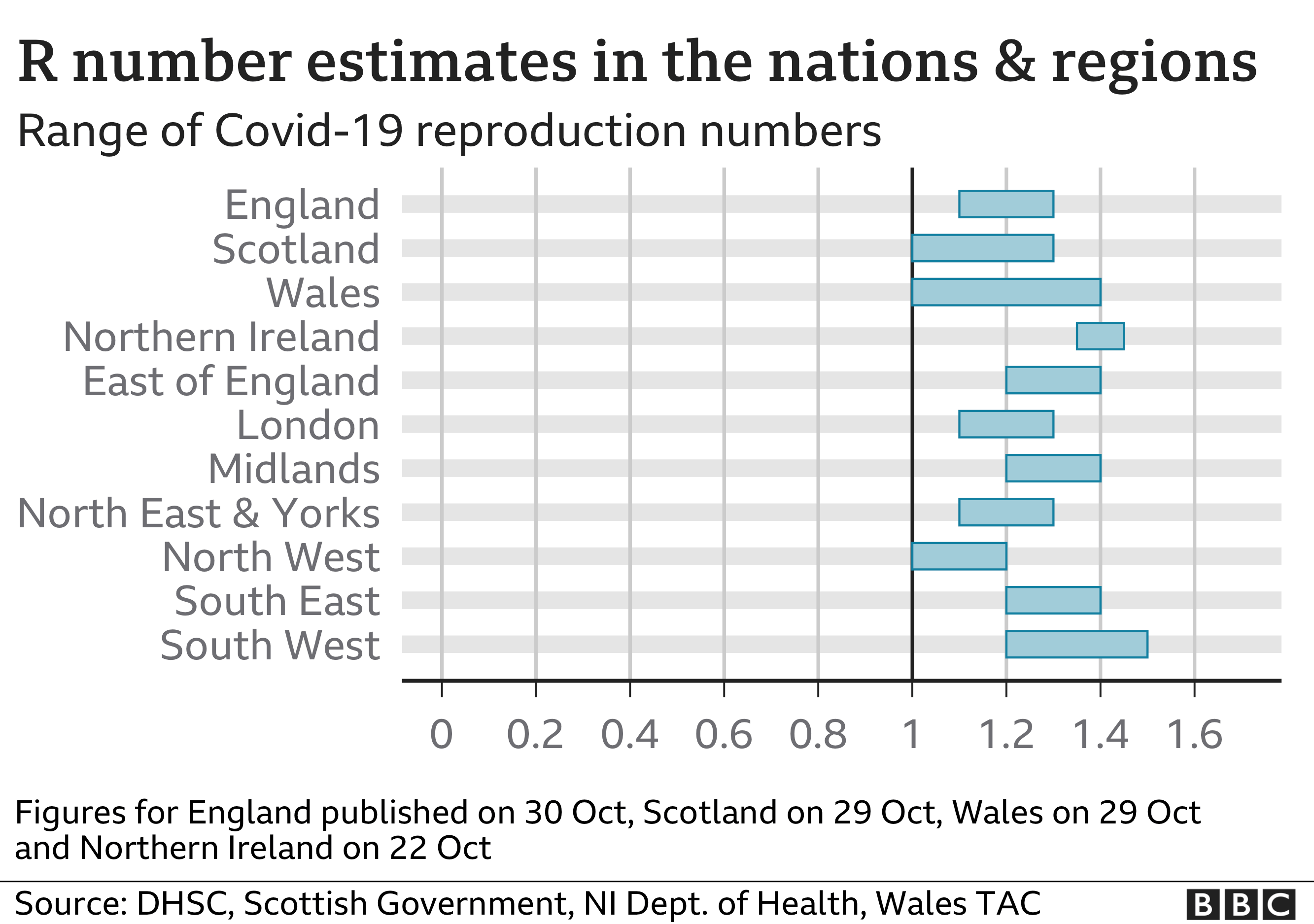Coronavirus: PM considering England lockdown next week
 The prime minister is considering a month-long lockdown across England in the hope that measures could be eased before Christmas.
The prime minister is considering a month-long lockdown across England in the hope that measures could be eased before Christmas.A new "stay at home" order could be announced on Monday, with schools, colleges and universities exempt.
Documents seen by the BBC suggest the UK is on course for a much higher death toll than during the first wave unless further restrictions are introduced.
Deaths could reach more than 4,000 a day, one of the models suggests.
This figure is based on no policies being brought in to slow the spread of the disease, but most of the models peak at about 2,000 a day.
At the height of the pandemic during the spring, deaths in the UK reached more than 1,000 a day.
Infection rates are currently soaring across much of Europe, prompting new forms of lockdown in Belgium, France and Germany.
The papers, understood to be part of a presentation by the government's pandemic modelling group SPI-M shown to Boris Johnson, feature several different projections of the likely course of the disease.
All models predict that hospitalisations are likely to peak in mid-December, with deaths rising until at least late December before falling from early January.
And a separate document circulating in government - based on NHS England modelling from 28 October - warns that the NHS would be unable to accept any more patients by Christmas, even if the Nightingale hospitals are used and non-urgent procedures cancelled.
The document warns that south-west England and the Midlands will be the first to run out of capacity, potentially within a fortnight.A government source said that the country is at a "crunch point".
No final decisions have yet been taken, and not all cabinet members have yet been consulted on the next steps.
But it seems that Mr Johnson is likely to take the national action that he swore he would do everything to avoid.
These latest papers come after official documents from the Scientific Advisory Group for Emergencies (Sage) revealed that Covid is spreading much faster in England than the predicted "worst case" scenario.
This scenario had estimated 85,000 deaths from Covid during winter.
But in the Sage documents - dated 14 October and published on Friday - scientists estimated that, by mid-October, there were between 43,000 and 74,000 people being infected with coronavirus every day in England.
Their report said: "This is significantly above the profile of the reasonable worst-case scenario, where the number of daily infections in England remained between 12,000-13,000 throughout October."
Scientists advising the government have been arguing for a short, planned lockdown - called a "circuit-breaker" - since 21 September, when there were around 5,000 confirmed cases a day.
'Too late'
Labour's shadow business minister Lucy Powell told BBC Breakfast suggestions of a national lockdown had come "too late", as she argued a circuit-breaker over half-term would have been more effective.
Ms Powell said the party had been calling for a circuit-breaker "for a few weeks now".
She added: "The government's dithering on this now means we've missed the half-term holiday when it could have had most impact.
"We could have saved more of the economy and reduced the impact of [lockdown] with a shorter, earlier circuit-breaker that coincided with half term."
But UK Hospitality chief executive Kate Nicholls said a national lockdown would be "absolutely devastating" for her industry.
She told the programme: "If we are to get through another national lockdown in hospitality [...] then we are going to need significant additional help to be able to get through this.
"People have borrowed up to the hilt, people have spent money in order to get Covid-secure. There is no spare capacity in the tank to be able to fund a lockdown - even for three to four weeks."
Her concerns were echoed by Federation of Small Businesses chair Mike Cherry, who said another lockdown would be "incredibly frustrating" as small businesses and businesses across the UK had "spend thousands" in making sure their premises are safe for employees and customers.
Speaking on BBC Radio 4's Today programme, Prof John Edmunds, a member of Sage, confirmed that the situation in the country is worse than the reasonable worst-case scenario produced by Sage.
"We've been significantly above that reasonable worst-case scenario for some time actually," he said.
"It is really unthinkable now, unfortunately, that we don't count our deaths in tens of thousands from this wave."
Asked if restrictions would have to be more severe than the circuit-breaker previously proposed by scientists, Prof Edmunds said: "Decisions are horrible - they are very difficult - but putting them off doesn't make them any easier, in fact it makes them more difficult.
"If we are going to put the brakes on the epidemic now, then we're going to have to put the brakes on harder and longer to bring the cases down to what might be an acceptable level."
He said that Christmas could be made "relatively safe" if coronavirus cases are brought down sharply with such "stringent" restrictions.
Meanwhile, another Sage member, Prof Calum Semple, told BBC Breakfast that the government's current three-tier system in England "hasn't worked particularly well".
He said a national lockdown, with full compliance, "would see a dramatic fall in hospital admissions" in four weeks' time.
Prof Semple suggested there should be a review at four weeks and there could be a "bit of easing around the festive activities" but that a lockdown would give officials "time to get test, trace and isolate processes really up to scratch".
The current estimate of the R number in the UK - the number of people each infected person passes the virus on to on average - is between 1.1 and 1.3, indicating that cases are still growing.
On Friday, 274 deaths were announced, meaning that since the start of the pandemic 46,229 people have died within 28 days of a positive test.
The government's current strategy is focused on local restrictions to control the virus.
Every area of England is now in one of three coronavirus alert categories - medium (tier one), high (tier two) or very high (tier three). Scotland has five levels of restrictions.
- SOCIAL DISTANCING: What are the rules now?
- SUPPORT BUBBLES: What are they and who can be in yours?
- FACE MASKS: When do I need to wear one?
- SCHOOLS: What will happen if children catch coronavirus?
- TESTING: What tests are available?
Scotland's new tiered system of restrictions will come into force at 06:00 on Monday, and Wales remains under a 17-day "firebreak" lockdown until 9 November.
Pubs and restaurants in Northern Ireland were closed for four weeks starting on 16 October, with the exception of takeaways and deliveries. Schools were closed for two weeks.
- HALLOWEEN AT HOME?: Get in the mood for spookiness with these tracks from the scariest films
- THE NAKED SCIENTISTS: Why are people catching coronavirus on purpose?
How have you been affected by coronavirus? What have restrictions meant for you? Share your experiences by emailing haveyoursay@bbc.co.uk.
Please include a contact number if you are willing to speak to a BBC journalist. You can also get in touch in the following ways:
- WhatsApp: +44 7756 165803
- Tweet: @BBC_HaveYourSay
- Please read our terms & conditions and privacy policy












No comments: